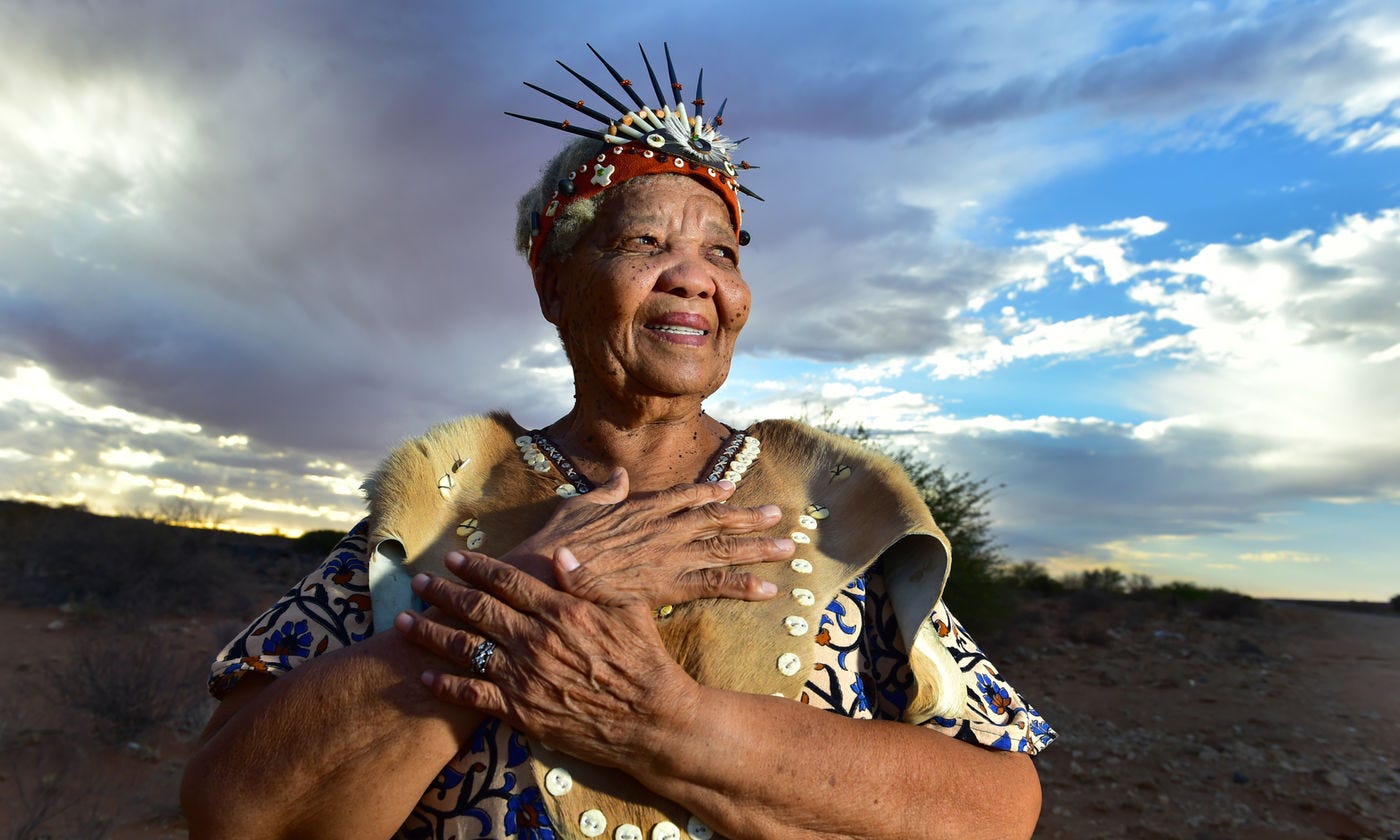🔅 Uganda's Bold Move on the Coffee Front
Plus: Cannes Goes Crazy for African Cinema, Angola Outpaces Nigeria in Oil Production, Katrina Esau: The Last Speaker of South Africa's N|uu, And much more...
This week we’re running a poll.
A few months ago, we ran the same poll, but given the results were so tight and our reader-base has grown, we thought we might just ask you again:
Cast your vote and help shape our newsletter.
(If you see an error instead of the poll in your email, click the newsletter's header for direct access.)
Photo of the day: Kigali, Rwanda

Markets:
🟢 Nigerian SE: 52,927.60 (+0.58%)
🔴 Johannesburg SE: 75,621.90 (-1.47%)
🔴 Ghana SE: 2,534.80 (-0.33%)
🟢 Nairobi SE: 98.50 (+0.53%)
🔴 US S&P 500: 4,109.90 (-0.86%)
🔴 Shanghai Composite: 3,204.75 (-1.28%)
The IMF Bails Out Kenya | Kenya's government has been feeling the pinch from debt repayments and a terrible drought. As a result, IMF staff and Kenyan officials have agreed to a deal that could unlock over $1 billion of new financing, a.k.a. a bailout. This money will give the East African nation some breathing room and, importantly, some more time to meet the IMF's requirements. This bailout isn't just about Kenya—it's about all of Africa. The IMF's Resilience and Sustainability Facility is designed to help bolster climate change resilience and adaptation. In total, the IMF has committed $3.5 billion to Kenya, and the staff-level agreement is expected to be considered by the executive board in July.
*Data accurate as of the close of markets across the continent
AGRICULTURE
Uganda's Bold Move on the Coffee Front

Uganda has made waves in the international coffee world by leaving the International Coffee Agreement 2007.
Uganda’s Coffee Development Authority gave seven reasons for leaving, including unfair tariffs, restrictions on exporting processed coffee and an “unjust and outdated” coffee classification system.
The International Coffee Organization responded to the news, noting that tariffs are actually under the jurisdiction of the World Trade Organisation and that a working group was established in 2019 to review and reform the Agreement.
The ICO said it had always been open to considering Ugandan proposals… which never came.
But Uganda isn’t one to be discouraged — it's got grand ambitions for its coffee industry.
What are Uganda's big plans?
It's tightened regulations for its growers and producers, and is distributing millions of new coffee seedlings to farmers.
Uganda wants to see its coffee exports reach 20 million bags in the next five years, and get into the world’s top two or three coffee producers.
That’s a lofty goal, but Uganda’s got the ambition to back it up. In the last financial year, Uganda saw record growth in coffee exports, earning a reported US$629.8 million.

Baobab with friends and colleagues for free daily updates on African business, money, and current affairs.
OTHER HEADLINES
Across the Continent
🎞️ Cannes Goes Crazy for African Cinema | This year’s Cannes Film Festival is making history with a record number of African films in the competition, including two in the main competition and four more in Un Certain Regard. But that’s not the only exciting thing happening in Cannes. It looks like the global industry is finally ready to put their money where their mouth is when it comes to African cinema. With the billion-dollar fund from the African Export-Import Bank, plus the presence of international film financiers, it looks like the African film industry is about to take off. Plus, with streaming services like Netflix bringing African films to the global stage, there’s never been a better time for African filmmakers to make their mark. It’s an exciting time for African cinema, and it’s only going to get better.
🇦🇴 Angola Outpaces Nigeria in Oil Production | Nigeria is no longer Africa’s largest oil producer, according to OPEC’s latest monthly oil market report. The title now belongs to Angola, whose production in April outpaced Nigeria’s by 91,000 barrels per day. Nigeria’s decline was largely due to the shutdown of activities at the Forcados oil terminal, which has been closed for two weeks, and a labour strike at the Nigerian unit of ExxonMobil. But it’s not all bad news—this dip in production might be the result of a much-needed maintenance project. A sectional replacement at the oil terminal involves cutting out the damaged section of the pipeline or tank and installing a new section in its place. It looks like the Forcados line has not been replaced since it was commissioned, so it’s no wonder it’s showing some wear and tear. The shutdown could help Nigeria get back on track in the oil production race.

🇿🇦 Katrina Esau: The Last Speaker of N|uu | We’ve all heard the old saying, “Use it or lose it.” That’s certainly the case with languages—especially N|uu, the language of South African hunter-gatherer groups that is now only spoken by 90-year-old Katrina Esau. As a girl, Esau was embarrassed to speak N|uu and instead spoke Afrikaans, the language of the white minority rulers. But she realized the importance of preserving her mother tongue and eventually opened a school to teach it to local children. Unfortunately, the school property was vandalized during the COVID-19 lockdown, leaving Esau as the last known speaker of N|uu. She laments that she has no one to talk to in her native language, but her granddaughter and language activist Claudia Snyman is determined to keep her grandmother’s legacy alive. More on this story.

FOOD FOR THOUGHT
Proverb of the Day
“The pillar of the world is hope.”
— Nigerian Proverb.
Are we hitting the mark?
Enjoying Baobab's updates? Spread the joy and share us with friends and colleagues — we'd be thrilled to have them join!
Feedback or thoughts? Just hit reply. We're all ears!



